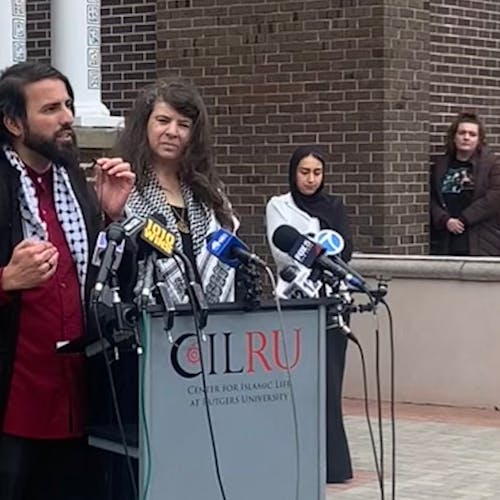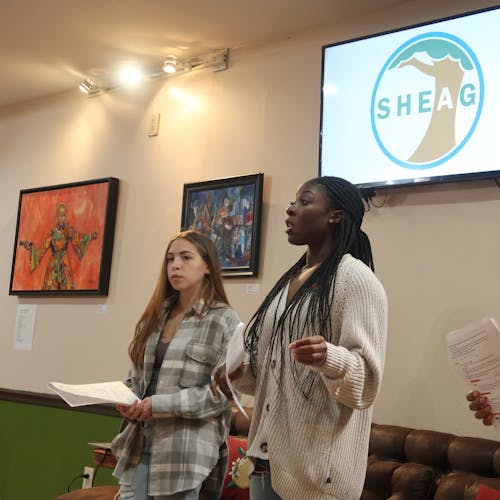RUSA meeting covers aid for college tuition

Eighty percent of Rutgers students receive state or federal aid, a statistic that spurred a conversation about the affordability of higher education at last night’s Rutgers University Student Assembly meeting in the Student Activities Center on the College Avenue campus.
Justin Habler, legislative and governing affairs chair for New Jersey United Students, and Marios Athanasiou, president of New Jersey United Students, presented NJUS’s Higher State Appropriates Campaign. The campaign focuses on urging the state of New Jersey to allocate more funding to higher education.
Gov. Chris Christie drafts New Jersey’s budget, several state committees draft their own budget bills, and the final version of the bill needs to be ratified by state legislative bodies. NJUS plans to draft their own version of the bill.
Habler, a School of Arts and Sciences junior, said in terms of funding for higher education, New Jersey places 48th out of the 50 states. Yet according to an NJUS research study, New Jersey has a $1.5 billion surplus in its budget, money that can easily be reinvested in higher education.
“The way we see it, higher education is not just philosophically the right thing to invest in — it is financially the right thing to invest in,” he said. “It actually would end up increasing the state revenue as well.”
Habler said he believes student involvement can make this change happen, and cited NJUS’s success in campaigning for the In-State Tuition Act as a testament to student power.
“The best advocates for any issue are the people affected by it,” he said.
After the presentation, RUSA voted to approve a bill to begin a campaign for higher state appropriations for higher education in New Jersey. This mandates that RUSA commit to advocating, researching, publicizing and providing funding for the cause.
Yet Alexander Uematsu, a Livingston campus representative who presented the bill, said these funds must ensure an accessible and affordable education for all New Jerseyans. Therefore, RUSA plans to campaign to institute a tuition freeze at Rutgers and across the state.
“Obviously, if they just appropriate more money to the University, that doesn’t mean its actually going to increase the affordability and accessibility of higher education,” said Uematsu, a School of Arts and Sciences first-year student. “They might do something like build a new football stadium, which would do nothing for accessibility and affordability.”
In addition to tuition affordability, RUSA voted to approve a bill that addressed campus safety.
Michael Martinez, a Cook campus representative, said in the October 2013, 339 crimes were committed at Rutgers — 234 that occurred off campus and 15 that occurred on campus.
Breaking down these crimes, 78 were theft, 12 were harassment, six were for DWIs, 14 were assault and two were aggravated sexual assaults.
“Whether you’re on or off campus, students shouldn’t be afraid of being a victim of crime. It’s unacceptable,” said Martinez, a School of Arts and Sciences first-year student.
The bill addressed campus use of blue lights, student safety whistles and building swipe access.
Amendments were added for RUSA to call upon local law enforcement to keep students safe, including those who live off campus, and to work with the Department of Public Safety to study and implement ways to help protect students.
RUSA announced that it plans to form an athletic committee in correspondence with Julie Hermann to ensure that student athletes remain involved in the community and in the Athletic Department’s decision-making processes.
Pavel Sokolov, president of RUSA, said the student assembly also plans to sponsor transgender advocate and “Orange is the New Black” actress Laverne Cox to speak at this year’s Mark Conference
Correction: A previous version of this article did not specify that 339 crimes at Rutgers happened in October 2013.



